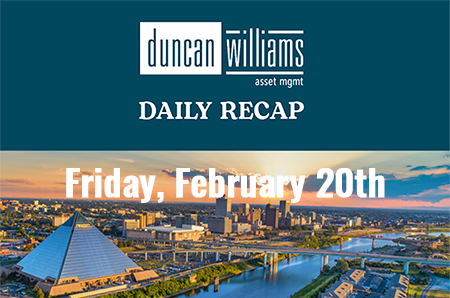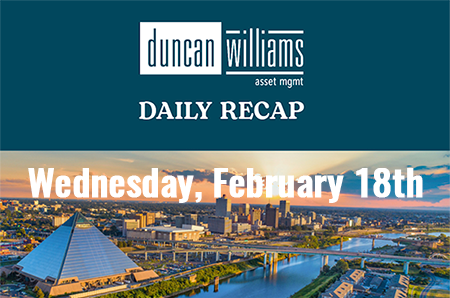
As we move through 2025, Americans everywhere—and especially right here in Memphis and the Mid-South—are feeling the ripple effects of new tariffs and shifting government policies. Today, we’re taking a closer look at how these big-picture changes could be impacting your investments, your wallet, and your future.
Across the country, the U.S. government has rolled out sweeping new tariffs on imported goods. The goal is to strengthen American industries and address trade imbalances, but the reality is a bit more complicated. BlackRock, a leading global asset manager, reports that higher tariffs tend to slow down economic growth and push prices higher. Their analysts say that if tariffs increase by 20%, economic development could drop by up to 2.5%, while inflation rises. That means everything, from groceries to gadgets, costs more, and the stock market may become bumpier.
Fidelity’s research team echoes these concerns. They point out that tariffs can create a tricky situation called “stagflation”—that’s when prices rise, but the economy slows down. However, there’s a silver lining: assets such as commodities, gold, and some international stocks can help cushion the blow. Their advice? Diversify your investments and don’t put all your eggs in one basket. This strategy can provide a sense of security and optimism in uncertain times.
During times of policy uncertainty, staying informed is key. Keep an eye on the news, be prepared to adjust your portfolio, and focus on companies with strong financials that can weather a storm. This proactive approach can help you navigate the changing economic landscape with confidence.
Now, let’s talk about market volatility. The St. Louis Federal Reserve notes that this year, the stock market has seen some of its wildest swings in decades, especially after major tariff announcements in April. The S&P 500 and the VIX, which measures market volatility, both made headlines. While things have calmed down a bit, it serves as a reminder of how quickly policy changes can impact your investments.
Deloitte’s latest economic outlook suggests that higher tariffs could prompt the Federal Reserve to reconsider its interest rate policies. If tariffs continue to rise, we may see increased borrowing costs and potentially even government spending cuts or tax hikes to maintain market stability.
Here in Memphis and the Mid-South, we’re feeling these changes in real time. DWAM’s July outlook says that rising tariffs are making everyday goods more expensive and squeezing local businesses. The Consumer Price Index for our region has increased by 2.4% over the past year, with rent and healthcare leading the way. Regional manufacturers and retailers—big employers in our area—are paying more for supplies, and those costs may eventually land in your shopping cart.
Local Memphis news outlets have reported that new tariffs on goods from Mexico and Canada are expected to hit grocery prices and everyday imports the hardest. Regional economist Dr. Gnuschke tells us that families and small businesses in the Mid-South will likely feel the effects of these changes the most.
And it’s not just tariffs. The president’s latest spending bill, known as the “Big, Beautiful Bill,” is shaking things up, too. This bill introduces new tax credits and deductions, which can be beneficial for some taxpayers. However, it also means cuts to federal funding for some local programs. The Memphis Shelby County School District, for example, is bracing for a $17 million reduction in federal support, which could impact families and services across our community.
So, what should investors do? Experts agree on a few key points. First, diversify: spread your investments across different types of assets and regions. Second, stay flexible and be prepared to adjust as new information becomes available. Third, focus on quality companies with strong finances. And finally, don’t panic—history shows that a steady, long-term approach usually pays off. This advice is a reminder that despite short-term fluctuations, a well-planned investment strategy can lead to long-term gains.
Disclosure
This communication is provided for informational purposes only and does not constitute investment advice, an offer, or a solicitation to buy or sell any security or investment product. All investments involve risk, including the potential loss of principal. Past performance is not indicative of future results. Investors are encouraged to consult with a qualified financial advisor. No part of this communication should be construed as legal or regulatory advice.
Sources:
- BlackRock 2025 Tariff Impact: https://www.blackrock.com/us/financial-professionals/insights/tariffs-and-investment-portfolios
- Fidelity: Tariffs and the Stock Market: https://institutional.fidelity.com/advisors/insights/topics/market-commentary/tariffs-what-they-are-how-they-work-and-how-they-affect-the-stock-market
- Northern Trust: What U.S. Tariffs Mean for Investors: https://www.northerntrust.com/united-states/insights-research/2025/investment-management/what-us-tariffs-mean-for-investors
- St. Louis Fed: Financial Market Volatility in the Spring of 2025: https://www.stlouisfed.org/on-the-economy/2025/jun/financial-market-volatility-spring-2025
- Deloitte: U.S. Economic Forecast Q2 2025: https://www.deloitte.com/us/en/insights/topics/economy/us-economic-forecast/united-states-outlook-analysis.html
- DWAM: Market Outlook Q3 2025—Memphis and the Mid-South: https://www.dwassetmgmt.com/blog/market-outlook-key-trends-to-watch-in-the-third-quarter-of-2025--with-a-focus-on-memphis-and-the-mid-south
- Local Memphis: Tariffs Impact Mid-South Economy: https://www.localmemphis.com/article/news/local/tariffs-mexico-canada-impact-mid-south-economy/522-c0aa942e-df2f-46eb-8021-bbc140dc48a1
- Local Memphis: New Tariffs Could Impact the Mid-South: https://www.localmemphis.com/article/money/new-tariffs-memphis-trump/522-e85c318e-80f8-4444-8e52-30c80f3f30cc
- Yahoo News: Big, Beautiful Bill Impact on Mid-South: https://www.yahoo.com/news/lawmakers-big-beautiful-bill-major-024512519.html












